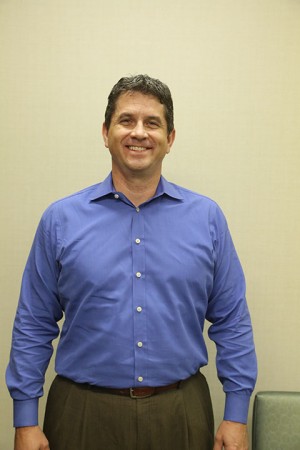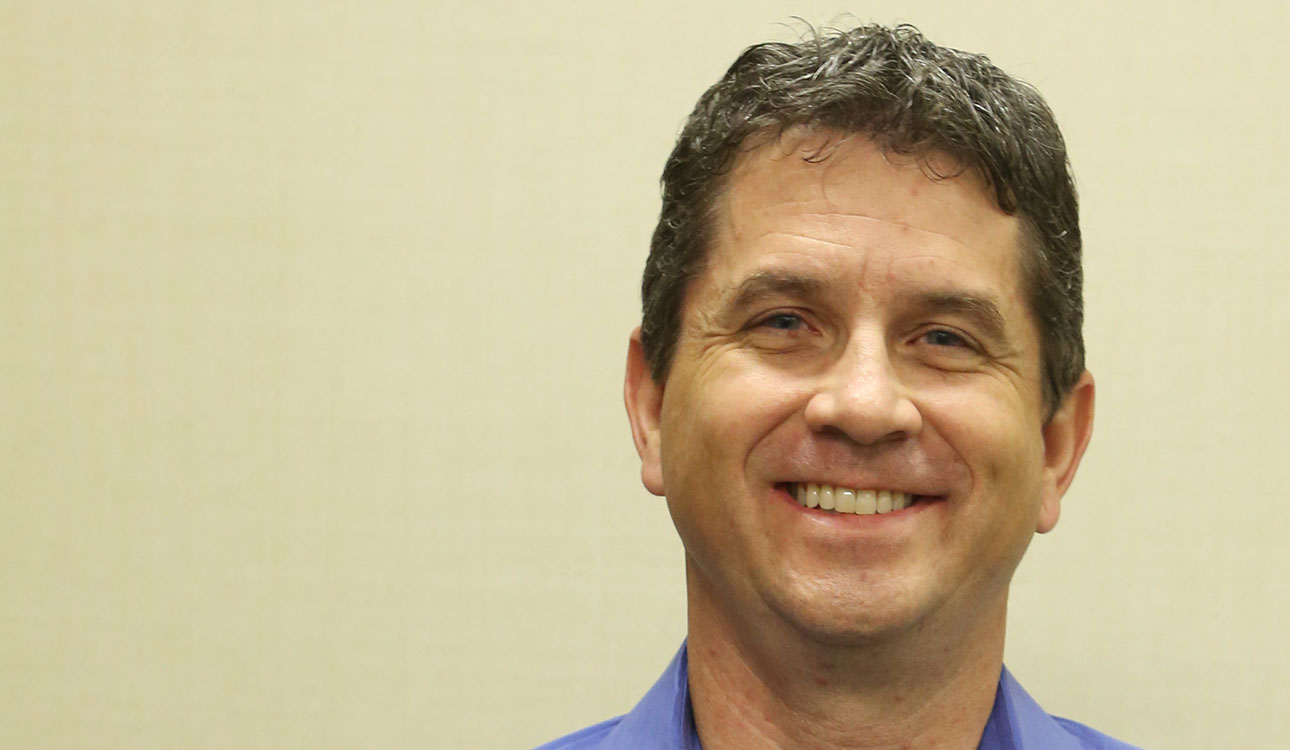
Robby Hirst | Lariat Photographer
Reporters
Baylor’s Psychology and Neuroscience Clinic welcomed Dr. John Klocek this summer as its new full-time director.
Klocek now oversees Baylor’s clinical psychology doctoral program as well as the basic clinical services offered to the citizens of Waco.The Baylor Psychology Clinic showcases Baylor’s mission of producing servants and leaders.
Klocek said the clinic’s goal for the graduate program is to be able to equip students with the proper education and experience needed to effectively help those in need.
“The university decided it was time, now, to expand and go further, so they wanted a full-time director,” Klocek said.
“My responsibility is to continue to develop this clinic as a place where our doctoral students are trained and a place where we are able to serve the community.”
A native Texan, Klocek grew up in the Fort Worth area and began his academic journey at the University of Texas at Austin, where he received his Bachelor of Science degree in psychology.
Although this is his first year at Baylor, Klocek is no stranger to Waco, having moved from Temple to work as an administrator at Waco’s Veterans Affairs Medical Center for the past year. There he was the supervisor of the clinic’s psychology services, working with their institutional review board to help coordinate psychology programs, while continuing to see and treat patients.During his time at the medical center, Klocek said he had many meaningful experiences with the veterans.
Though it was a tough decision to leave such a program, Klocek said he is excited to be back in a university environment.
“At heart, I’m an academic,” he said. “I really enjoy working with students and developing students as it goes along and contributing in that way.”
Klocek said one of his primary goals as the clinic’s new director is to develop the volume of services they offer. The clinic formerly had a part-time director. With a full-time director, the clinic is now capable of continuing its work while expanding and growing.
“Since I’m now here full time, I can take on a lot more folks to supervise,” Klocek said. “Therefore, we can provide a lot more services to the community.”
Even those who may not be able to afford clinical treatment of similar quality can take advantage of the Baylor Psychology Clinic’s many services.
“We operate on a sliding fee scale, and people pay according to what they earn,” Klocek said. With this system of payment, the Baylor Psychology and Neuroscience Clinic is able to aid many different families from all across Waco.
In addition to the treatments the clinic has available, many other health organizations are partnering with Baylor’s Psychology and Neuroscience Clinic.
Klocek seeks to grow relationships with these organizations. One of those partners is the Heart of Texas Autism Network. The network, a nonprofit corporation based in Waco, aids children and adults affected by Autism Spectrum Disorder. The clinic offers assessments for ADHD, learning disabilities, IQ testing, as well as any diagnostic assessments that seem necessary for clients.
With these assessments and various methods for treatment and therapy, the clinic is capable of helping clients of many ages.
“We’ll have anywhere from about one or two sessions a week to about six or seven sessions a week,” said Waco graduate student Priscilla Maranville.
Along with a full-time staff, the clinic allows graduate students to learn in the field while also treating patients from around Waco.
“I have a strong investment in research and I’d like to expand the kind of research that we’re able to do here,” he said. “We attract absolutely outstanding graduate students and I am very impressed with the folks we are able to bring in. They are trained to do research in a very sophisticated way and they are trained to ameliorate human suffering in a very sophisticated way.”
In the first three years of the program, graduate students are assigned to a practicum location at either the clinic or another location in Waco. In the fourth year, graduate students work exclusively in the research lab.
“In a lot of graduate programs, you won’t start doing therapy or clinical work until your second or third year,” Maranville said. “We really get the opportunity to start practicing and learning from day one.”






